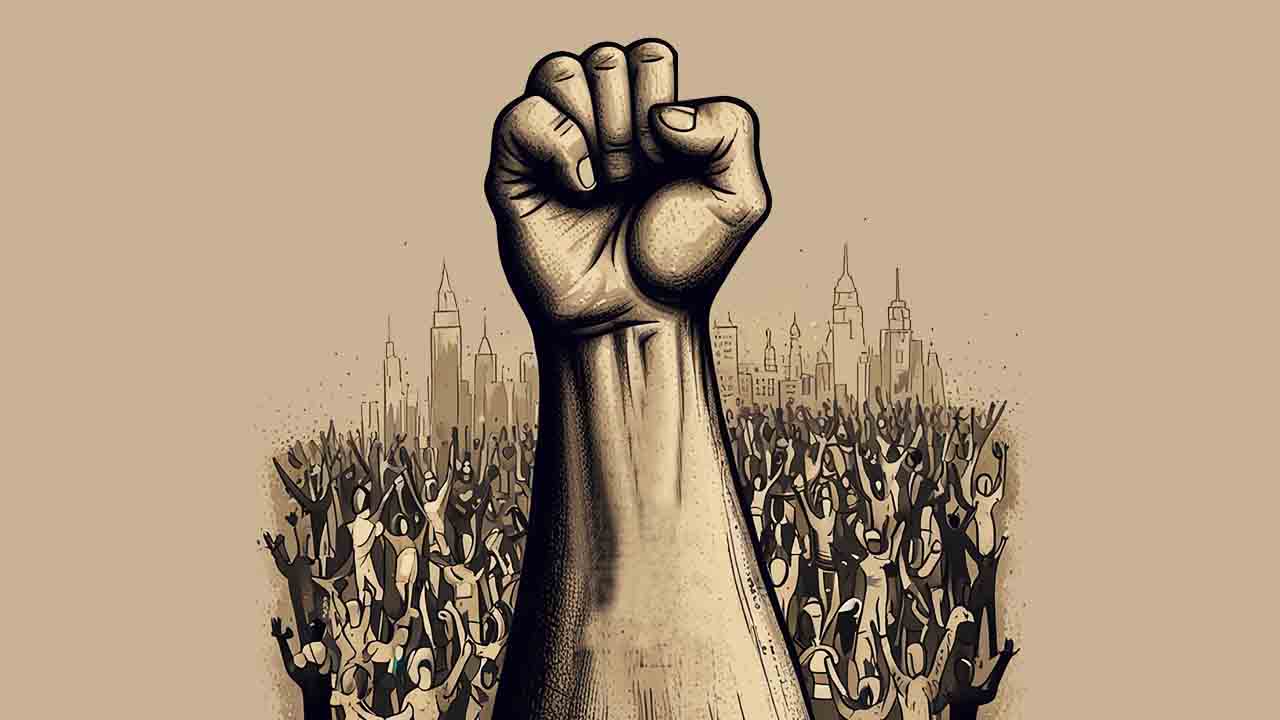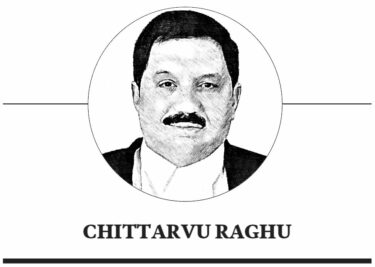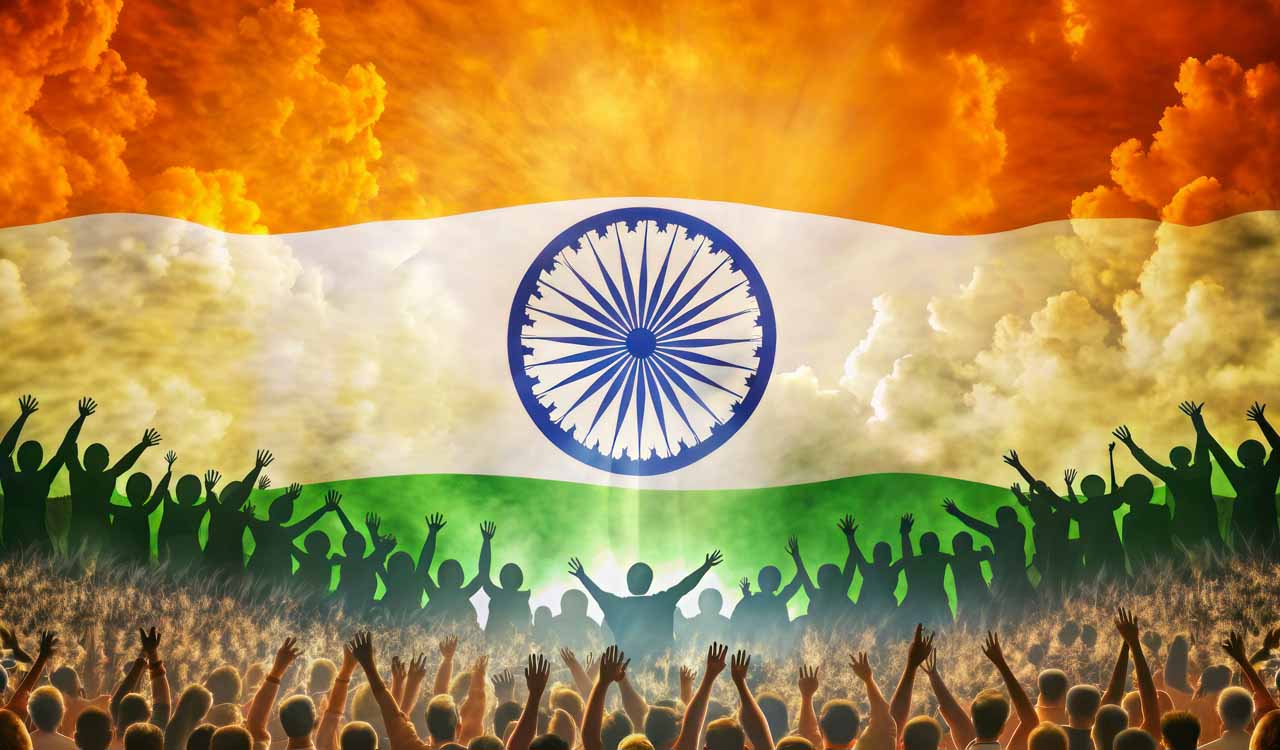Opinion: State’s silence on ‘Marwari Go Back’ dangerous
To ask a community to ‘go back’ is a violation of penal laws and constitutional rights

By Chittarvu Raghu
The recent emergence of the slogan ‘Marwari go back’ in Hyderabad is more than a simple political utterance; it is a profound and unsettling challenge to the very foundation of India’s legal and social contract.
Also Read
While it may be dismissed by some as a local expression of discontent, a closer examination reveals that such rhetoric is not only morally indefensible but also a direct violation of established penal laws. This is a matter of grave concern, as it brings into sharp focus the state’s silence in the face of potentially criminal acts and its failure to uphold the fundamental rights guaranteed to all its citizens.
What Law Says
At its core, the slogan targets a specific community, a move that is explicitly addressed and criminalised by our legal system. The Bharatiya Nyaya Sanhita (BNS), our new legal code, contains provisions that are squarely applicable to such instigating statements. BNS Section 196, which is akin to the erstwhile IPC Section 153A, makes it a punishable offence to promote feelings of enmity or hatred between different groups on the grounds of religion, race, place of birth, or community. A statement that targets an entire community and demands they leave a city could, without a doubt, be interpreted as a direct promotion of hatred.
BNS Section 196 makes it a punishable offence to promote feelings of enmity or hatred between different groups on the grounds of religion, race, place of birth, or community
The law is not concerned with the veracity of the claims made against a community but with the intent and likely effect of the words — to create animosity and potential public disorder. This is not a matter of subjective interpretation; the very act of calling for a group’s ouster from a place where they have the constitutional right to be is an act of incitement.
The offence is further compounded when such statements are disseminated through public platforms, including the electronic media. BNS Section 353, mirroring the former IPC Section 505, addresses the circulation of any statement or report that is likely to incite an offence against any community. When inflammatory rhetoric is amplified through social and electronic media, it ceases to be a fringe comment and becomes a public act of incitement, legally demanding a swift and decisive response.
Against Constitution
It is here that the state’s silence becomes particularly alarming. These offences are cognizable, a legal term of immense significance, meaning a police officer can arrest a person without a warrant and initiate an investigation on their own cognisance. The law provides for immediate action, yet when faced with rhetoric that threatens the harmony of a city and the rights of a community, the apathetic response is both baffling and dangerous. The question must be asked: if the law empowers the state to act, why is it failing to do so?
Beyond the letter of the law, such slogans are a direct and brazen challenge to the fundamental values enshrined in the Indian Constitution. A cornerstone of our republic is the freedom of movement and residence. Article 19(1)(e) guarantees every citizen the right to reside and settle in any part of the territory of India. This right makes it unequivocally clear that no Indian citizen can be considered a “foreigner” in their own country.
The Marwari community, like any other, has the constitutional right to live and conduct business anywhere in India. The argument that they are being targeted for alleged business violations is a dangerous and misguided path that threatens to unravel the very fabric of our diverse nation. The law has a clear mechanism for dealing with illegal activities, operating on the principle of individual guilt rather than collective punishment.
It is both absurd and deeply unjust to allege that an entire community is violating the law, as if non-Marwaris are immune to such transgressions. Such a broad-brush accusation is a pretext for communal targeting and undermines the very essence of a legal system based on due process and individual accountability.
Hypocrisy in National Discourse
This issue also forces us to confront a profound hypocrisy in our national discourse. We, as Indians, are quick to protest against the discrimination and targeting faced by our diaspora in other countries. Recent reports of Indians being targeted as a community in places like Ireland rightly draw our outrage and condemnation.
We demand that foreign governments protect the rights of our citizens and ensure their safety and dignity. But can we, in good conscience, protest against such acts abroad when we allow similar acts of communal targeting to happen within our own borders? Can we rightfully demand a moral high ground when we turn a blind eye to slogans that demand an entire community “go back” from a city that is as much theirs as anyone else’s? A responsible citizenry must recognise this inconsistency. Our protest abroad holds moral weight only if we are committed to upholding the same principles of equality and non-discrimination at home.
Clarion Call
The law is framed to protect the rights of the individual, irrespective of their religion, caste, or group affiliation. When a particular community is singled out with inflammatory statements, it is the duty of the state to enforce the law and protect the rights of its citizens. The failure to act can be seen as tacit approval, which in turn emboldens those who wish to sow discord and fragment our society.
A healthy democracy and a vibrant nation are built on the foundations of mutual respect and the recognition that we are all equal citizens under the law. It is time for a collective realisation that the slogan ‘Marwari go back’ is not just a passing political statement; it is a clarion call for division and a violation of our most basic legal and constitutional tenets. It is a moment for every responsible citizen and, most importantly, the state, to stand up and reaffirm that in India, a citizen’s right to live, work, and thrive is not conditional on their community of origin.

(The author is a senior Advocate)
Related News
-
Jangaon Municipality chairperson, vice chairperson election held amid protests
5 mins ago -
Hyderabad: 23 foreign nationals detained in Tolichowki cordon-and-search operation
7 mins ago -
C. Subramaniam Award presented to CDS Chairperson Mallepalli Laxmaiah
23 mins ago -
C Shekar Reddy to take over as CII-IGBC National Chairman
38 mins ago -
God of War: Sons of Sparta review — Bold experiment that falls short
48 mins ago -
BRS celebrates KCR’s 72nd birthday with Telangana-themed programmes
56 mins ago -
GMRIT notified as Deemed-to-be-University by Ministry of Education
1 hour ago -
Hyderabad to host ICCA Global Summit 2027 for first time in India
1 hour ago




